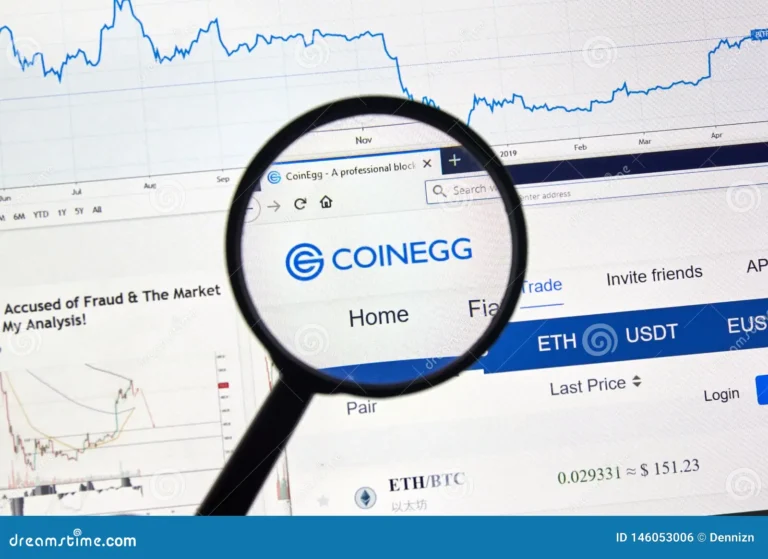Table of Contents
Introduction to Coinegg
This Coinegg review investigates whether growing concerns around Coinegg scam allegations are legitimate. Coinegg presents itself as a cryptocurrency trading platform offering exchange services and investment tools, reportedly registered in the UK (though regulatory details remain sketchy). If you’ve been scammed by Coinegg or you’re worried before investing—this review addresses your frustration and anxiety. We examine whether Coinegg is a scam or a legitimate crypto platform. This Coinegg review uncovers every warning sign you need to know.
Coinegg: Regulation & Legal Status
Coinegg is not regulated by any reputable financial authority such as FCA, ASIC, CySEC or SEC. Broker safety watchdogs and analysts clearly state it lacks oversight by top-tier regulators. Some promotional material refers vaguely to AML/KYC compliance—but without formal licensing, those claims are meaningless. Operating without regulation means no investor protection, no legal oversight, and no dispute resolution. Many deceptive platforms have used similar tactics—fake regulation claims, offshore shell entities, and unverifiable legal disclaimers. Learn how to spot a scam broker before it’s too late. The absence of oversight raises serious questions about whether Coinegg is a scam.
Trading Conditions & Platform Analysis of Coinegg
Coinegg markets “guaranteed high profits,” and promises fast, high‑yield opportunities—an immediate red flag. Details about account tiers, minimum deposits, fees, spreads, leverage or execution systems (like MT4/MT5, ECN or STP) are either missing or superficially described. The site may claim proprietary systems but offers no proof of connectivity or trade routing transparency. Offering 2FA or cold storage is nice, but does not equal real trust, especially absent legal regulation. What to check before signing up with a trading platform. These serious gaps make it harder to dismiss the idea that Coinegg might be a fraud.
Reputation & User Reviews About Coinegg
User testimonies on platforms like Forex Peace Army reflect multiple complaints: deposit transactions that never reflect on account balances, repeated support failures, and frozen assets. CloudSEK researchers uncovered fake domains and Android apps masquerading as CoinEgg—used in phishing and crypto-stealing campaigns, often replacing the legitimate site interface to deceive users. TechForing lists Coinegg among fake crypto exchanges tied to pig‑butchering scams—victims coerced into large crypto investments only to never withdraw their funds. Trustpilot-based support described by third-party forums notes shady operation and unresolved issues.
How to Test Whether Coinegg Is a Scam
Here’s how you can evaluate whether Coinegg is a scam:
- Check for regulation: Search official FCA, ASIC, CySEC databases. If unlisted, that’s a major red flag.
- Spot red flags: Look for hidden company details, no audited reports, offshore-only contact info, or vague legal disclaimers.
- Read real user feedback: Investigate complaints on TrustPilot, Forex Peace Army, Reddit, or scam-report blogs for consistent patterns.
- Test the platform: Evaluate website design, demo accessibility, and follow-up on small withdrawals if permitted. Scam sites often delay or block withdrawals.
- Review withdrawal terms: Watch out for site demands of unexpected “taxes,” network fees, or crypto-only payout with no fiat option.
- Watch false promises: Phrases like “guaranteed gains,” “double your deposit,” or “zero risk” are hallmarks of fraud.
- Try a demo account: Legit services often provide a deposit-free demo. Scams may force funding immediately or misrepresent demo behavior.
Final Verdict & Alternatives
Given the lack of regulatory oversight, reported user losses, phishing-related fake domains, and repeated deposit/withdrawal issues, Coinegg strongly appears to be a scam. The platform’s promotional claims and lack of corporate transparency resemble many known pig‑butcher crypto scams.
Final verdict: We advise avoiding Coinegg completely. Its unresolved red flags outweigh any unverified promises.
Alternatives: Use only broker/exchange platforms under strict regulation—such as Coinbase, Kraken, Gemini, or licensed brokers like eToro or Interactive Brokers. Those platforms provide formal oversight, transparent fees, and legal investor protection.



